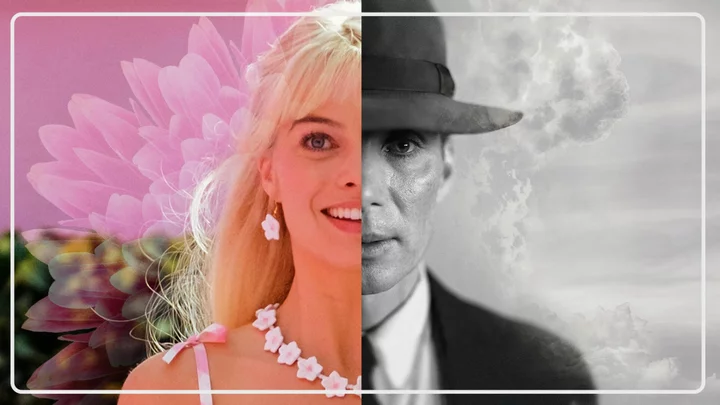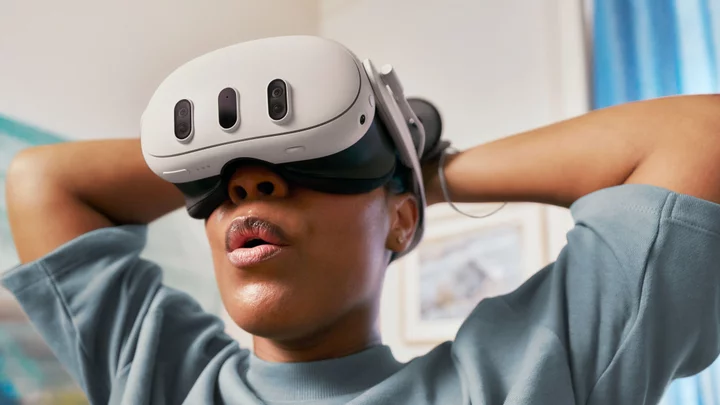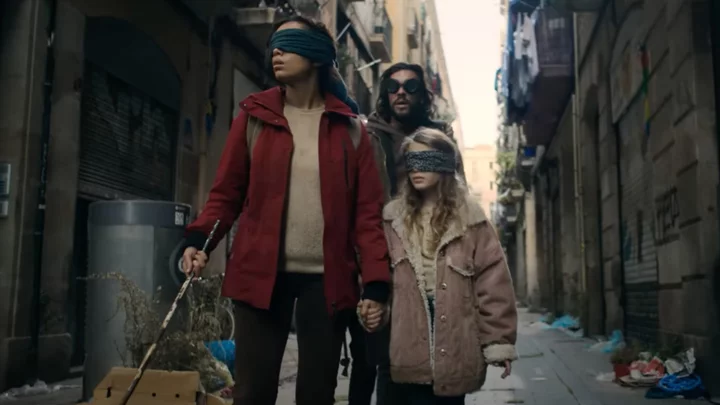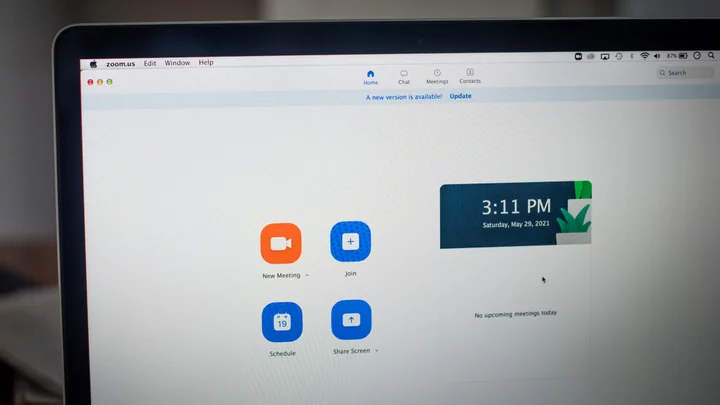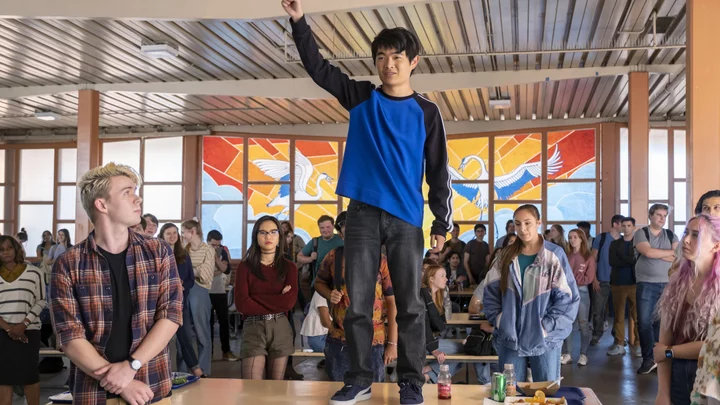Throw on your pink sunglasses and take cover because the Barbenheimer countdown has officially reached zero.
With Greta Gerwig's Barbie and Christopher Nolan's Oppenheimer finally opening today (July 21), the continued plea to save cinema (Tom Cruise, we're looking at you) appears to be on the verge of success, turning casual film followers into pink stans and history buffs and convincing thousands of movie-goers to stream into national chains for a 5-hour-long double feature.
Variety reported that 40,000 people purchased tickets to see Barbie and Oppenheimer on the same day in AMC Theaters, as of four days before the films' release.
The two seemingly dichotomous films have engendered one of the most intense online reactions in recent memory, earning the attention and investment of brands, an entire library of niche memes, and even a new pop culture vocabulary. But what is it about these two films — and the notoriously fickle social media environment — that led us here?
Mashable tech reporter Elena Cavender and Mashable social good reporter Chase DiBenedetto discuss how the successful, year-long promotional run of the two films — heavily carried by the pink-hued, brand-centric Barbie — resulted from new ways of engaging with entertainment industry news.
SEE ALSO: Breaking Mashable report: An evidence-based ranking of Ryan Gosling's most Kenergetic quotesThe update account as cult leader
Elena: In order to discuss the Barbenheimer phenomenon we have to get into the bizarre entertainment news landscape that led to its creation. In 2020, there was a proliferation of entertainment news update accounts that have since become hugely influential in the way anyone who spends any time on Twitter gets their entertainment news.
Chase: Individual-led accounts like Pop Base and Pop Crave have taken control of Twitter's music and pop culture news, sharing updates to almost 2.4 million followers, cumulatively. In the world of movie discourse, DiscussingFilm (1.1 million followers) and Film Updates (638,000 followers) are engaged with as frequently — both seriously and in jest — as established entertainment media publications.
And, as many users are probably aware from scrolling their own feeds, these accounts seem to take priority in the algorithm. It's highly likely you'll spot that black Film Updates account photo announcing a new movie well before the star or director can hop online.
Elena: The accounts mimic similar problems with algorithmic news feeds: inconsistent citing of sources leading to misinformation, bias over what's covered, and a stream of random information the accounts demand you care about.
Chase: It's extremely easy to forget that they're essentially fan accounts, run by individuals, but promoted with the same aesthetics as fact-based news feeds. In fact, when an update account breaks the fourth wall and incorporates a human voice into their posting, many followers are unnerved.
Elena: While the accounts present themselves as straightforward entertainment news aggregators, they are clearly biased…and extremely horny! I can think of at least 15 men off of the top of my head that Film Updates is down-bad for.
Chase: People love joking about Film Updates and its "horny audience." It's a really interesting rehashing of the dynamics and ethics of tabloid coverage. And even though Barbenheimer has an older generation of heartthrobs leading the casts, these accounts still had their hands on the proverbial countdown button. The obsessive, inundating "entertainment news" built upon the fervor around cult-followed directors like Gerwig and Nolan and the internet's insatiable appetite for ironic memes.
Without Film Updates letting you know about every single casting decision, celebrity birthday, and collaboration, how would you stay in the digital conversation?
Elena: In this climate of so much entertainment news all the time, we were served information about Barbie and Oppenheimer for an entire year, spurring endless cycles of memes and buzz.
It's also the style of update account posts — two side-by-side images with a brief sentence caption — that literally gives us the imagery for Barbenheimer! The bright photos of Margot Robbie beaming next to moody, black-and-white shots of Cillian Murphy in distress.
Chase: The structure of update accounts has quickly informed the way we talk and post about movies — especially Barbenheimer. A simple tweet about a recent star's Instagram post, or an uncredited quote or image, draws followers into the replies — where they add their own jokes, context, or thoughts into what would otherwise be a floating piece of information. The update account page becomes the discourse and debate hub.
Elena: I'm thinking about the sudden drop of that first image of Ryan Gosling as Ken which birthed the #NotMyKen movement and the defending of Gosling countermovement. Had that image been contextualized with literally anything Gosling said about playing Ken — now we love his Kenergy — it would have been an entirely different narrative. For the record, as a sufferer of Goslingitis, I never doubted him for a second.
Chase: All this being said, there's a key difference between the Barbenheimer fervor and the old midnight screening blockbuster movie hype everyone is so nostalgic for, and that's the influence of social media.
Elena: It's also no secret that the internet finds its greatest amusement in the dichotomy of girl and boy.
Barbenheimer does just that. Remember Barbie gf / Oppenheimer bf from oh so many interactions of Barbenheimer memes ago? It was the perfect social media landscape for these films to be released into.
Barbenheimer arises from pandemic fandom behavior
Chase: We've talked extensively about the impact of the COVID-19 lockdown on fandom behavior and the reliance on social media as an arbiter of a niche, digital culture. "Many of us spend a lot of our free time recreating on the internet, but we don't perceive the internet as real and tangible," Bridget Kies, an assistant professor of film studies and production at Oakland University, told us in our reporting on fandom and celebrity obsession.
In this vein, a lot of pop culture hype happens exclusively online. But, with summer events like Barbenheimer, those online discussions now have real-world goals, and, importantly, physical spaces for people to gather — to be the most involved in the zeitgeist is to be the first in line in theaters, the first to make or buy the funniest Barbenheimer merch, or the first to plan the best theme party. In a circular (read: evil genius) move, any physical promotion for the movies, like the Oppenheimer countdown billboard, then becomes an online meme — and the cycle continues.
Elena: Much like the overabundance of viral tour content, this is the first year since lockdown where blockbuster after blockbuster has been released, and, unsurprisingly, the girls (gender-neutral) don't know how to act.
In the age of streaming, fewer movies get a theatrical release — so when we engage with the few that do, many fans take on a feral attachment to the novelty. I'm thinking of last summer's #Gentleminions here.
SEE ALSO: Barbenheimer isn't just a meme, it's a call to actionChase: I think a little bit of that was noticeable with the (not-so-ironic) Nicole Kidman AMC advertisement meme too. Only one day into Barbenheimer showings, Kidman's speech is already integrated into the lore — one moviegoer, dressed in pink, stood up to recite the speech before an early Barbie screening.
The Barbenheimer moviegoing experience is defined by the internet's imagined experience of the movies — well before reviews even published. Elena, you've written about fans debating the appropriate viewing schedule and outfit changes to match the stark tone shift.
As an avenue for in-person socialization, and a justification for existing in crowded public spaces, taking on an extreme enthusiasm for a piece of pop culture has bled out of fandom and into mainstream behavior. If it's all a joke, it's hard to be criticized.
Barbenheimer irony demands the internet's attention. Does everything need to be a joke?
Elena: Having a cigarette and martini before Oppenheimer, but only to commit to the bit. Spending $45 (?) on tickets and 5 hours in the cinema, but it's all for the meme. Hello?!
Can we not just be excited to see two films made by two directors with strong fan bases without twisting them up in irony and gender-politics-based humor?
Chase: Barbenheimer makes a strong case that the internet can only engage with something as a collective if it's ironic. Earnestness is a hard sell, especially on Twitter, and people are craving the lighthearted reversal of news in a period defined by negative headlines. So what better way to have an excuse to ignore reality and be just like everyone else than a year-long bit?
Elena: The two movies themselves warrant normie love, but when you combine them together that's when you get the social media phenomenon and strange treatment of them.
Barbie is doing the heavy lifting here with excessive promo, but because of Barbenheimer, Oppenheimer is roped into every silly, light-hearted marketing play by Barbie, and the contrast allows Oppenheimer to be a joke, giving people a justification for seeing it.
Chase: The cast of Barbie is in on the memes, generating the majority of them even, but the Oppenheimer cast and crew see the opportunity as a win for all of cinema. The earnest responses of Nolan and star Cillian Murphy, rather than taken as indications of the serious matter Oppenheimer grapples with, somehow become even more absurd than something like "Kenergy."
When Google promoted Barbie with a pink sparkle search result, Twitter was quick to joke that phones would blow up in honor of Oppenheimer. Immediately after a cloud of smoke appeared in the Warner Bros. lot in Los Angeles, users jumped on the chance to say it was the Oppenheimer PR team on the offense against the Barbie team. And any other billowing smoke clouds were Barbenheimer PR as well, obviously. Later, as bad news slipped in among Barbie promo, many users joked it was part of Nolan's movie push.
Barbenheimer or modern definition of Americana?
Elena: An insane marketing scheme involving pink sparkles and a joke about bombs. That's America, baby!
Chase: What started as a fan following for Gerwig and her latest project ballooned into one of the biggest branding exercises I've ever seen — an efficient way to capitalize on the desire to subtly rep your favs — cleverly hiding toy company Mattel's influence among the memes and a juxtaposition with Nolan's latest three-hour drama. It was only until a recent announcement of Gerwig signing onto a movie deal with Netflix that the minority of Barbie critics were joined by wary fans, hinting at the director "selling out" to big IP.
Similarly, Nolan's epic about the controversial mind behind America's greatest war weapon slipped through a digital environment usually quick to critique these kinds of narratives and their white directors. The week of the film's release saw the first of several viral tweets on the film's subject matter.
Elena: It's only mildly ironic that these films center around two of America's "greatest" creations: a doll turned corporate profit machine and the atomic bomb.
Chase: And it's also telling that the only thing that could overpower the internet's desire to negatively engage with pop culture was a promise of childlike escapism. Following an exhausting last couple of years, it was nice to reside in the pink bliss — myself included.

